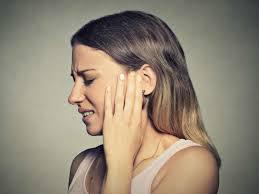The human body is complex, and sometimes it gives off odors from the most unexpected places. One of those surprising spots is behind the ears. Many people notice an unusual smell behind ears, especially after a long day or when hygiene has been neglected. Although it might seem insignificant, this odor can be bothersome and embarrassing. Understanding why it happens, what it means, and how to manage it can help you maintain both your confidence and overall health.

The skin behind your ears is warm, slightly oily, and often neglected during daily washing. This creates the perfect environment for odor-causing bacteria and fungi to thrive. Unlike areas such as the armpits, which people pay close attention to during bathing, the space behind the ears is easy to overlook. As a result, sebaceous glands, sweat, and dirt accumulate, leading to the familiar unpleasant smell.
In addition to sweat and oil, dead skin cells build up in this area, feeding bacteria and contributing to the odor. This is similar to why scalp odor or earwax smells can develop if not cleaned regularly. The smell may also intensify if you wear glasses, earrings, or headscarves, since these items trap heat and sweat.
The most common reason for noticing a bad smell behind ears is inadequate cleaning. Even people who shower daily may miss this spot, allowing bacteria, sweat, and natural oils to collect.
Sebum, the natural oil produced by sebaceous glands, protects the skin but also attracts dirt and bacteria. Some individuals have more active sebaceous glands, which can make the smell behind the ears stronger.
Skin conditions such as seborrheic dermatitis, eczema, or psoriasis can affect the skin behind the ears, leading to flaking, redness, and odor. In such cases, the smell is often accompanied by itching or irritation.
Although ear infections usually cause symptoms inside the ear, they can also produce a noticeable odor around the outer ear. If the smell is accompanied by discharge, pain, or hearing issues, a medical consultation is essential.
Sweating during exercise, humid climates, or wearing non-breathable fabrics around the head can make the odor worse. Even hair products like gels, sprays, or conditioners can leave residue that mixes with sweat and oil behind the ears.
The good news is that dealing with the smell behind ears is usually simple. Regular hygiene practices can eliminate or significantly reduce it.
When washing your face or showering, take a moment to clean behind your ears thoroughly with warm water and gentle soap. Pay attention to the skin folds, as bacteria often hide there. Dry the area completely afterward to prevent fungal growth, since damp skin can worsen the smell.
If regular soap does not solve the problem, mild antibacterial cleansers or medicated shampoos can help. Ingredients like tea tree oil, salicylic acid, or zinc pyrithione are especially useful for reducing bacteria and treating seborrheic dermatitis.
Dry skin can also cause flakiness and odor. Applying a non-comedogenic moisturizer behind the ears after cleaning helps keep the skin barrier healthy.
Sometimes, earwax buildup contributes to the smell. While cleaning the ear canal yourself is not recommended, you can maintain good ear hygiene with ear drops or professional cleaning if necessary. Likewise, keeping the scalp clean helps prevent oil and sweat from dripping behind the ears.
If the odor is persistent, painful, or accompanied by rashes and discharge, it may indicate a skin condition or infection. In these cases, dermatologists or ENT specialists can provide proper treatment. Prescription creams, antifungal lotions, or antibiotics might be necessary depending on the cause.
Yes, prevention is possible with consistent care. Incorporating behind-the-ear cleaning into your regular hygiene routine ensures that oils and sweat do not build up. Washing your hair regularly also prevents residue from collecting in that area. If you wear glasses, sanitize the frames often, since they rest directly behind the ears and may carry bacteria.
A balanced diet and hydration also play a role, as they influence your skin’s oil production and overall health. Additionally, avoiding heavily fragranced hair or skincare products can help, since strong chemicals sometimes irritate the sensitive skin behind the ears, worsening the problem.
While most cases of odor behind the ears are harmless and easily fixed with hygiene, medical attention may be necessary if you notice additional symptoms. These include persistent redness, painful rashes, yellow or white discharge, or a strong foul odor that doesn’t improve with cleaning. Such signs could indicate an infection or chronic skin condition that requires treatment.
The smell behind ears is a common but often overlooked issue. It usually stems from sweat, natural oils, and bacteria accumulating in an area that many people forget to wash thoroughly. Although the odor can feel embarrassing, it is rarely a sign of something serious. Regular cleaning, moisturizing, and good scalp hygiene can usually keep it under control. However, if the odor persists despite good care or is accompanied by other symptoms, consulting a healthcare professional is the best step forward.
By paying attention to this small but important part of your body, you not only prevent unwanted odors but also improve your overall hygiene and confidence.